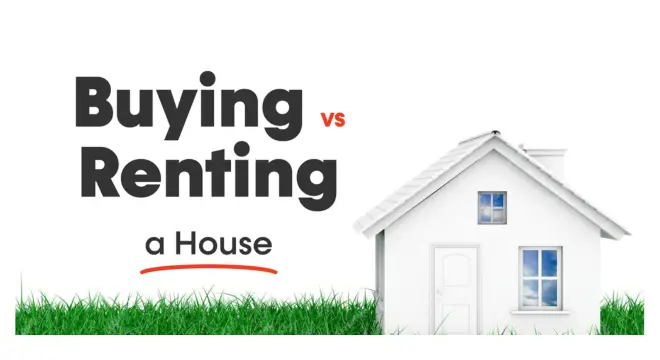How Home Insurance Works: Filing Claims and What You Need to Know
Honestly, nobody really expects the worst to happen. You plan your weekends, enjoy your backyard, and think your home is safe—until suddenly, it isn’t. A hailstorm tears through your roof, someone breaks in while you’re at work, or a grill accident leaves your backyard scorched. These are the moments where homeowners insurance isn’t just paperwork—it’s a lifeline.
I’ve seen too many people treat insurance like an optional expense until disaster hits. The truth is, a solid home insurance policy can save you tens of thousands of dollars, and sometimes more. It’s not about paranoia; it’s about being prepared. Insurance protects you from financial shock when life throws the unexpected your way.
Think of it this way: your home is likely the biggest investment you’ll ever make. Protecting it with insurance is like having a safety net—you hope you never need it, but you’ll be relieved it’s there when you do. And beyond the financial side, it’s also peace of mind. Knowing that if something goes wrong, you won’t be left scrambling—that alone is worth the premium.
In the next sections, I’ll walk you through exactly how to use that safety net when disaster strikes, step by step, so you don’t waste time, money, or stress when filing a claim.
How to File a Home Insurance Claim?

When something goes wrong, the first thing you want is clarity—not confusion. I know it can feel overwhelming if your home is damaged, but filing a claim doesn’t have to be a nightmare. Let’s break it down step by step, so you know exactly what to do.
Step 1: Act Quickly, But Stay Safe
Before picking up the phone, make sure everyone in your home is safe. Call the authorities if necessary, and don’t hesitate to leave the house if it isn’t safe. I always recommend keeping receipts for any temporary expenses, like hotel stays, because your insurance may reimburse them.
Step 2: Notify Your Insurance Company Promptly
Once you’re safe, contact your insurer. Most allow you to file a claim online or over the phone. I usually call, because it’s a chance to ask questions directly—like, “Is this incident covered?” or “Will it surpass my deductible?” Realtor emphasizes that contacting your insurer quickly is crucial to avoid claim denials. I find this step reassuring—it gives you a roadmap before the paperwork even starts.
Step 3: Document Everything
This is where I get a bit obsessive—and you should too. Take photos, videos, and write detailed notes about every damaged item. Think of it as building a digital journal of the incident. Trust me, adjusters appreciate thorough documentation, and it helps you avoid disputes later.
Step 4: Meet the Insurance Adjuster
Your insurer will likely send an adjuster to inspect the damage. I always make a point to be present during this visit. Ask questions, show your documentation, and make sure they don’t overlook anything. This step is your chance to set the record straight and ensure you get a fair estimate.
Step 5: Review the Settlement and Move Forward
After the adjuster’s assessment, your insurer will issue a settlement offer. You might get reimbursement for repairs you’ve already completed or a check upfront. I always recommend reviewing the offer carefully. If something seems off, speak up—you can negotiate or request clarification.
I often get questions from homeowners about handling tricky claims. If you want quick updates or tips while you’re on the go, you can stay in the loop with our latest advice through WhatsApp updates—it’s an easy way to get practical insights right on your phone.
What Happens if Your Home Insurance Claim Is Denied?
Nobody likes to think about this, but sometimes claims get denied. I’ve been there with clients and friends, and it can be frustrating. The good news? Understanding why it happens and knowing your options can make it much less stressful.
Common Reasons for Denial
- The damage isn’t covered by your policy.
- You filed too late.
- Damage results from normal wear and tear or poor maintenance.
- The cost is below your deductible.
- Misrepresentation of the incident (intentional or accidental).
- Lapsed insurance or unpaid premiums.
I always tell homeowners: a denial isn’t the end of the road. First, ask for an explanation in writing. Then, see if there’s room to appeal. Sometimes it’s a simple misunderstanding that can be resolved with proper documentation. If it’s more complicated, you might consider negotiating a compromise or hiring an attorney.
The key is to stay proactive. I’ve seen claims get approved on appeal simply because the homeowner had kept organized receipts, photos, and a detailed timeline. You want to be that person.
Denied claims can feel overwhelming, but understanding past real-life disasters can help you prepare. Check out the story of a tragic house fire that destroyed a Niskayuna family home to see how proactive insurance management can make a difference.
Should I File a Home Insurance Claim? Understanding the Impact on Your Rates

I get it—you’re staring at the damage and thinking, “Should I even file a claim?” That’s a real question, and it’s one I ask every client when we review their policies. Filing a claim isn’t just about whether you can get money—it’s also about whether it’s worth the potential impact on your insurance rates.
Some claims, like theft or dog bites, are more likely to raise your premiums because insurers see them as recurring risks. But if it’s a one-time event—like a severe windstorm or a freak accident—your rates might not change much at all.
Here’s how I look at it: weigh the cost of the damage against the likelihood of a rate increase. If your roof caved in or your kitchen got destroyed, that payout could be tens of thousands of dollars.
I’d rather take a slight bump in premiums than pay that repair bill out of pocket. You need to make the decision based on your situation, but I promise, having the numbers in front of you makes it less stressful.
If you’re also navigating home loans while protecting your property, it helps to know your options. Here’s a breakdown of the top 5 home loans every first-time buyer should know in 2025 to make your financial planning easier.
Tips to Make the Claim Process Smooth
You want this process to go as painlessly as possible. Over the years, I’ve learned a few strategies that really help.
- Keep Records Organized: Take photos, videos, and keep receipts for every related expense. I can’t stress this enough—organized evidence makes your claim much stronger.
- Communicate Clearly: When you speak with your insurer, be concise and factual. I always recommend writing down the names of people you speak to and key points from each call.
- Maintain Your Home: Regular upkeep can prevent claims from being denied due to negligence. Think of it as your investment in your future claim success.
- Use Technology: There are great apps for home inventory tracking. I personally encourage clients to log valuable items and home updates—they make filing claims faster and more accurate.
Following these steps makes the claim process less intimidating, and it puts you in control rather than feeling like you’re at the mercy of the system.
Keeping detailed records and staying on top of home maintenance can prevent unexpected issues. If you want to know more about what home insurance often misses and how to avoid surprises, take a look at our guide on 7 Things Home Insurance Misses: Avoid These Costly Surprises
Final Thoughts
Filing a home insurance claim might feel intimidating at first, but it doesn’t have to be. I’ve walked through these steps with homeowners countless times, and the key is preparation: know your policy, document thoroughly, and act quickly.
Remember, your home is one of your biggest investments, and using your insurance wisely is simply protecting that investment. Take it one step at a time, stay organized, and don’t hesitate to ask questions along the way. You’ve got this—you’re not alone in the process.
Before you go, think about this: if disaster struck tomorrow, would you be ready to file a claim confidently? I’d love to hear how you prepare for the unexpected—drop your tips or experiences in the comments!
If you want more tips on avoiding costly surprises with your home and insurance, check out our website Build Like New guide for detailed advice.
Disclaimer: This article is for informational purposes only and is not legal or financial advice. Policies and coverage can vary, so always check your specific insurance documents. Consult your insurance company or a professional for advice regarding your situation.


